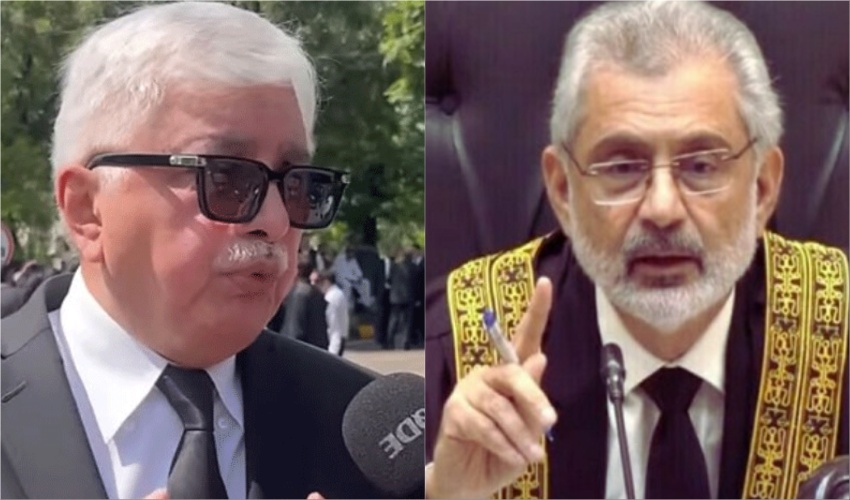Tayyab Mustafain Kazmi – a lawyer representing Pakistan Tehreek-e-Insaf (PTI) – was arrested on Thursday for his unruly behavior during a Supreme Court hearing, which was presided over by Chief Justice Qazi Faez Isa.
The incident took place as the court reviewed petitions regarding Article 63-A, a constitutional clause pertaining to the disqualification of lawmakers.
Kazmi was taken into custody by Islamabad police from F-7/4 and subsequently transferred to the Secretariat Police Station. His disruptive conduct included making threats of opposition against the court’s ruling, stating that “500 PTI lawyers were prepared to oppose any ruling against the party.”
Tensions escalated during the hearing when Kazmi openly challenged the bench’s legitimacy, criticizing the judiciary and demanding the removal of two judges, Justice Naeem Akhtar Afghan and Justice Mazhar Alam Mian Khel. Chief Justice Isa firmly addressed Kazmi’s defiance, asserting, “You cannot run the courts through intimidation. We will continue with the proceedings, no matter how much opposition we face.”
The Chief Justice had earlier cautioned Kazmi about his behaviour, stating, “Do you want institutions to be run through threats? My only fault is that I have always shown patience.” As Kazmi persisted in his outburst, the Chief Justice ordered police intervention to maintain courtroom decorum.
Justice Jamal Khan Mandokhail, also part of the bench, expressed serious concern regarding the increasing trend of targeting judges following unfavorable rulings, remarking, “This behaviour is unacceptable. We are here for the integrity of the institution, not for money or power. The judiciary must remain independent.”
Kazmi eventually exited the courtroom, refusing to continue his arguments, leading to his subsequent arrest. This incident followed a significant ruling by the Supreme Court, which overturned a 2022 decision regarding Article 63-A.
The court ruled that votes from defecting lawmakers should be counted, a decision that alters the legal interpretation of this constitutional provision. A detailed judgment is expected to follow the unanimous short order issued by the bench.


